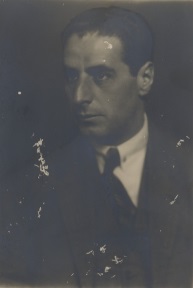Related Research Articles

A string orchestra is an orchestra consisting solely of a string section made up of the bowed strings used in Western Classical music. The instruments of such an orchestra are most often the following: the violin, which is divided into first and second violin players, the viola, the cello, and usually, but not always, the double bass.

Malcolm Benjamin Graham Christopher Williamson, was an Australian composer. He was the Master of the Queen's Music from 1975 until his death.

Joseph Joachim Raff was a German-Swiss composer, pedagogue and pianist.

Ernst Toch was an Austrian composer of European classical music and film scores, who from 1933 worked as an émigré in Paris, London and New York. He sought throughout his life to introduce new approaches to music.
Gordon Percival Septimus Jacob CBE was an English composer and teacher. He was a professor at the Royal College of Music in London from 1924 until his retirement in 1966, and published four books and many articles about music. As a composer he was prolific: the list of his works totals more than 700, mostly compositions of his own, but a substantial minority of orchestrations and arrangements of other composers' works. Those whose music he orchestrated range from William Byrd to Edward Elgar to Noël Coward.

Hilding Constantin Rosenberg was a Swedish composer and conductor. He is commonly regarded as the first Swedish modernist composer, and one of the most influential figures in 20th-century classical music in Sweden.
D major is a major scale based on D, consisting of the pitches D, E, F♯, G, A, B, and C♯. Its key signature has two sharps. Its relative minor is B minor and its parallel minor is D minor.
Joseph Horovitz was an Austrian-born British composer and conductor best known for his 1970 pop cantata Captain Noah and his Floating Zoo, which achieved widespread popularity in schools. Horovitz also composed music for television, including the theme music for the Thames Television series Rumpole of the Bailey, and was a prolific composer of ballet, orchestral, wind band and chamber music. He considered the fifth string quartet (1969) to be his best work.
Arnold Atkinson Cooke was a British composer.
The Toy Symphony is a musical work dating from the 1760s with parts for toy instruments, including toy trumpet, ratchet, bird calls, Mark tree, triangle, drum and glockenspiel. It has three movements and typically takes around seven minutes to perform.
Bernard (George) Stevens was a British composer who first became known to a wider public when he won a newspaper composition prize for a 'Victory Symphony' in post-war 1946. The broader success was not sustained, but Stevens went on to become a respected composer and teacher at the Royal College of Music, using traditional forms for his compositions while extending his essentially tonal harmonic language towards serialism.
Robert Frank Kurka was an American composer, who also taught and conducted his own works.
William Brocklesby Wordsworth was an English composer. His works, which number over 100, were tonal and romantic in style in the widest sense and include eight symphonies and six string quartets.
Matthew Taylor is an English composer and conductor.
Graham Whettam was an English post-romantic composer.
Richard Hoffmann was an American composer, musicologist and educator. He served many years as a professor at Oberlin Conservatory of Music.
Edric Cundell CBE, was a British music teacher, composer and conductor.
References
- ↑ Wise Music Classical
- ↑ Craggs, Stewart R. Malcolm Arnold: A Bio-bibliography (1998), p 39
- ↑ Meredith, Anthony and Harris, Paul. Malcolm Arnold (2004), p 158n
- ↑ Budd, Vincent. 'Malcolm Arnold, brief biographical details' at MusicWeb International
- ↑ Malcolm Arnold Society
- ↑ Not now Bernard and other stories, ORC100115 (2020)
- ↑ Jackson, Paul. The Life and Music of Sir Malcolm Arnold: The Brilliant and the Dark (2003), p 59
- ↑ Symphonie burlesque, Op. 62, IMSP
- ↑ Kinder-Sinfonie, Op.239, IMSLP
- ↑ published by Wise Music Classical
- ↑ Johnson, Edmond T. 'Toy Instrument (USA)' in Grove Music Online (2001).